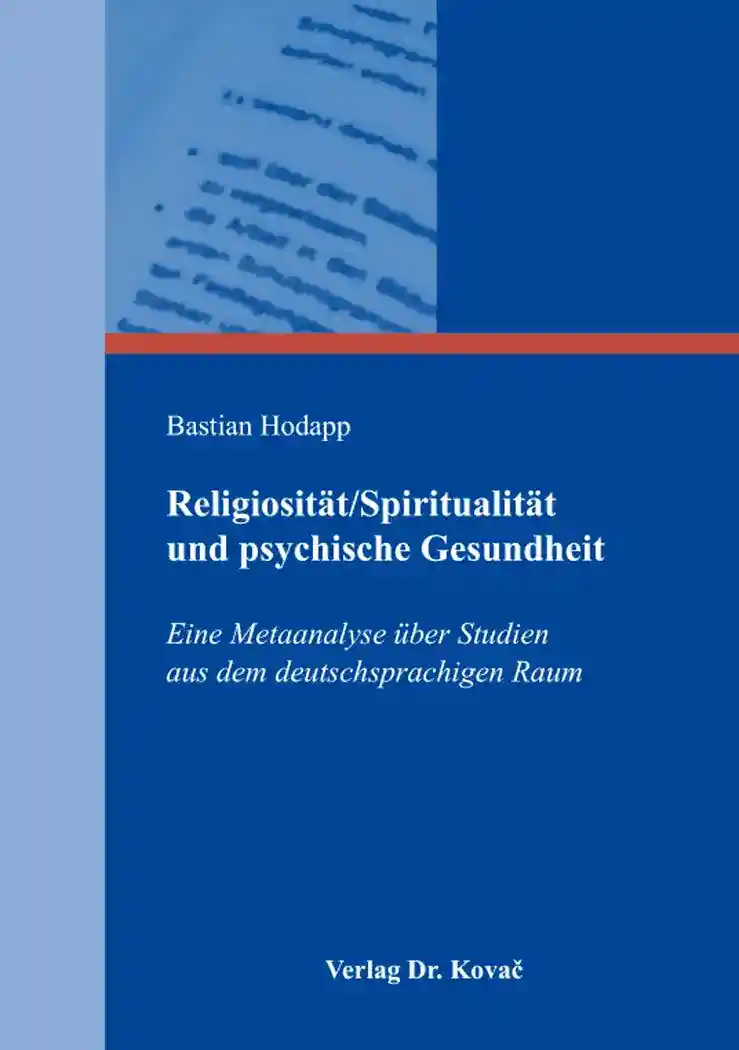Bastian HodappReligiosität/Spiritualität und psychische Gesundheit
Eine Metaanalyse über Studien aus dem deutschsprachigen Raum
Schriften zur medizinischen Psychologie, volume 39
Hamburg 2017, 220 pages
ISBN 978-3-8300-9609-2 (print)
ISBN 978-3-339-09609-8 (eBook)
About this book deutschenglish
For many centuries if not even millenniums, people have dealt with the question, whether there was a relationship between religion and health or not. “Your faith has made you well” (Mk 5,34). According to Mark, that at least is what the Gospel claims, and thereby suggests that there is a relationship between religion and health. But is there any support from empirical research for this assumption? And which empirical results are available with regard to mental health in particular? Numerous studies and meta-analyses from the US-American area indicate that there is a positive however small effect between religiosity/spirituality and mental health. Taking a closer look at studies from the German-speaking countries, the picture is unclear and inconsistent: Some studies report positive connections between religiosity/spirituality and mental health, others indicate that there is a negative relationship. Furthermore, there are studies in which no relationship between religiosity/spirituality and mental health is found at all.
Meta-analyses are a statistical technique of integrating such heterogeneous results in order to higher-level conclusions, considering all the existing studies for a special field of research. Regarding the relationship between religiosity/spirituality and mental health, there are several meta-analyses available for the US-American area. For the German-speaking countries, no such research syntheses exist. Due to the very different religious-cultural background, the findings of meta-analyses from the US-American area cannot directly be generalized with the the German-speaking area. The meta-analysis presented here integrates relevant studies so far conducted in Germany, Austria, and German-speaking Switzerland for the first time. There were k = 67 studies with n = 119 575 participants included. A first insight: In comparison with results of meta-analyses from the US-American area, there are similarities but also differences. The results show that it is particularly important to consider the different measures of religiosity/spirituality and mental health.
